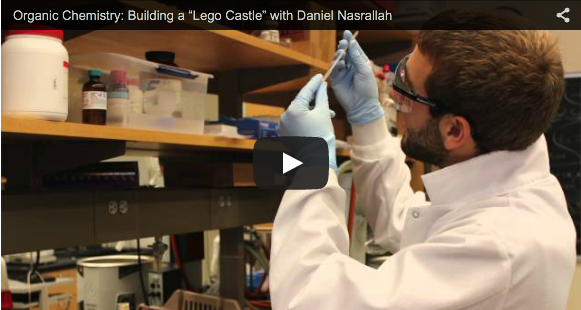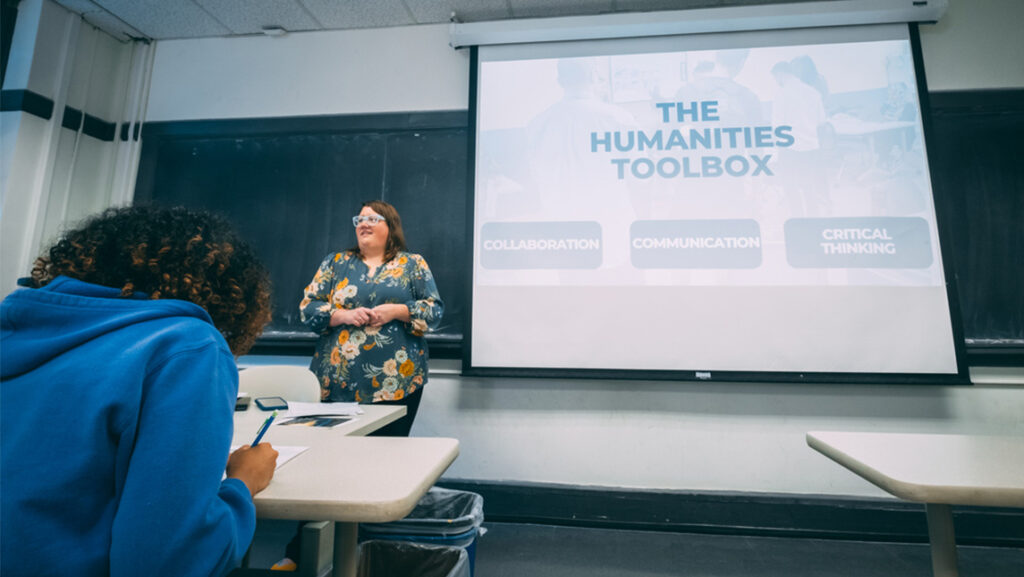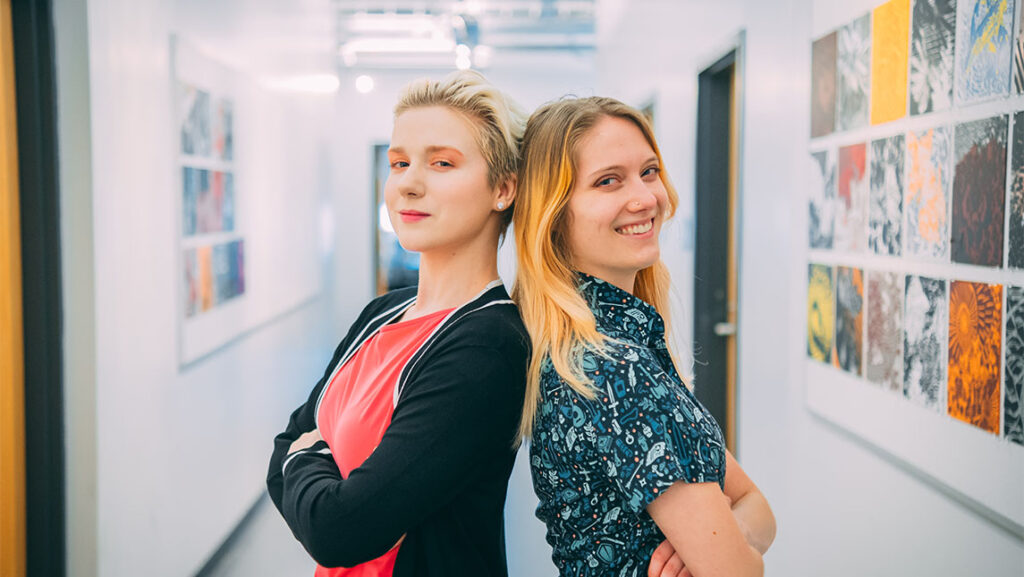Daniel Nasrallah graduated from UNCG in 2014 with a degree in chemistry. As an undergraduate student majoring in organic chemistry, Nasrallah worked on a research project with Dr. Mitchell Croatt. Last year, Daniel sat down with UNCG Research to tell us about his work, how he got started in research, and how it has impacted his life.
Organic Chemistry: Building a “Lego Castle”
I do research in an Organic Chemistry lab, which means I get the opportunity to go into a lab, combine chemicals, run reactions, look at the results of these reactions and try to draw conclusions to see what I’ve made. In order to find results I have to ask questions like ‘Is it important? Is it a significant discovery? Would the scientific community care about this discovery?’
I’m synthesizing cyclooctatetraene and cyanocarbene molecules, which have potential applications in pharmaceuticals, energy production, and material sciences. The simplest way to break down the project that I am working on right now is to think about it as Lego blocks. I am taking individual ‘Lego blocks,’ which are molecules, and combining them under specific condition and trying to build a Lego castle. I take basic starting materials, organic compounds, and expose them to different temperature, solvent, and catalyst conditions, to make specific or targeted products. Depending on how successful or unsuccessful the reactions are, I modify the procedures and investigate new aspects of reactions, to try to come up with a new ways to make these compounds or Lego castles.
Turning obstacles into opportunities
Research does have its challenges. The project that I’m working on publishing now was not the intended goal of the research that I started. Like many great scientific discoveries, we set out trying to discover one thing, were not able to find it, but over the course of running reactions discovered something entirely different, something almost entirely unexpected. We renamed the project, shifted our focus and began trying to intentionally make this compound that we had just discovered we could make. And so that’s what we’ve been doing ever since. It’s been a really interesting project because it wasn’t what we initially intended but is still potentially valuable to the scientific community.
A Team Effort
When I started my research, I was actually part of a team. I was on a team of two other undergraduates and a doctoral student. We all worked together on similar but different aspects of same project. So whenever I ran into a problem, I could ask other students what they had done when facing similar problems like mine. Over time, they’ve actually graduated and moved on so I’ve had to take on more responsibility for the project. It’s been really unique and cool to be able to work alongside students, upperclassmen, and over the years, I’ve actually had the opportunity to train and pull people on to my project. When we had a post-doc come to our lab for a semester, I had the responsibility of training him, getting him up to speed on the project, assigning him the reactions and the work we wanted him to be responsible for, and just overseeing the work he did. It’s really a transition from me, being trained to being able to train other students.
Another key collaboration is with my research advisor. I’ve been working with the same research advisor for three years, Dr. Croatt, and he was the one who accepted me as a freshman, which was a bit of a risk for him, but I think he will say it that it’s the one that paid off. It’s crucial to have a good relationship with him and be able to go by office to say, “I’ve run into this problem. I’ve asked everyone in the lab and they have no clue on what to do. What do you think? What approach do you recommend me?” There’s a lot of collaboration. Within the lab, even people who aren’t working on your project, you ask them for support all the time. It’s kind of like a little community or family in the lab.
I’ve also done a good bit of partnership and collaboration with the Office of Undergraduate Research. They funded me to travel to New Orleans to present research through a travel grant. This semester, OUR awarded me a assistantship to help me pursue my research. OUR is actually paying me to do the research, which is an awesome opportunity for me.
Also, I’ve had the opportunity to collaborate with other professors in the chemistry and biology departments. On a couple of projects or aspects of projects, we have needed to call in biologists, or we needed to call in another chemist who had experience in the field.
Future plans
From this experience of doing research for past three years, I’ve had incredible opportunities to present research, to study abroad, and just to have my name on publications. This has prepared me very well for graduate school, which is what I am planning on applying for this semester. In graduate school, I will be doing very similar things: taking classes but mostly focusing on doing research and learning the most about chemistry in the purest form.
It’s even prepared me for beyond grad school. When I get into a professional career, whether it’s at a university or at some sort of business, I’ll have the ability to communicate chemistry clearly, in a way that chemists and non-chemists can understand, which is very important in our field. Even if we make the biggest discoveries in the world, if we don’t tell anyone about it and if we can’t communicate to other people appropriately, then it’s almost not significant. So being involved in research has gotten me to place where I can learn the chemistry, understand it, use it, but then also tell other people about it.
Through the Research Perspectives blog, students, staff, and faculty share their successes in research, creative activity, and community and economic engagement with each other and the world at large. Interested in contributing? Click here.



